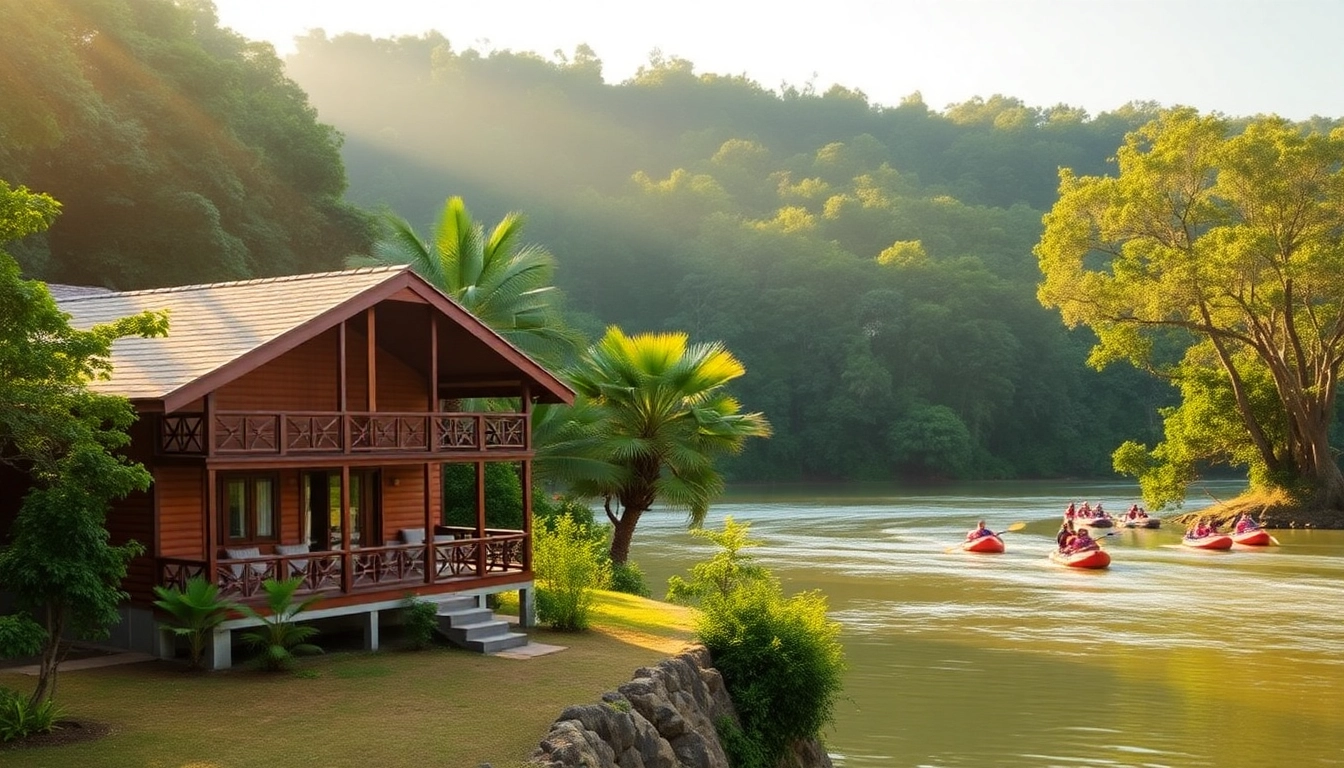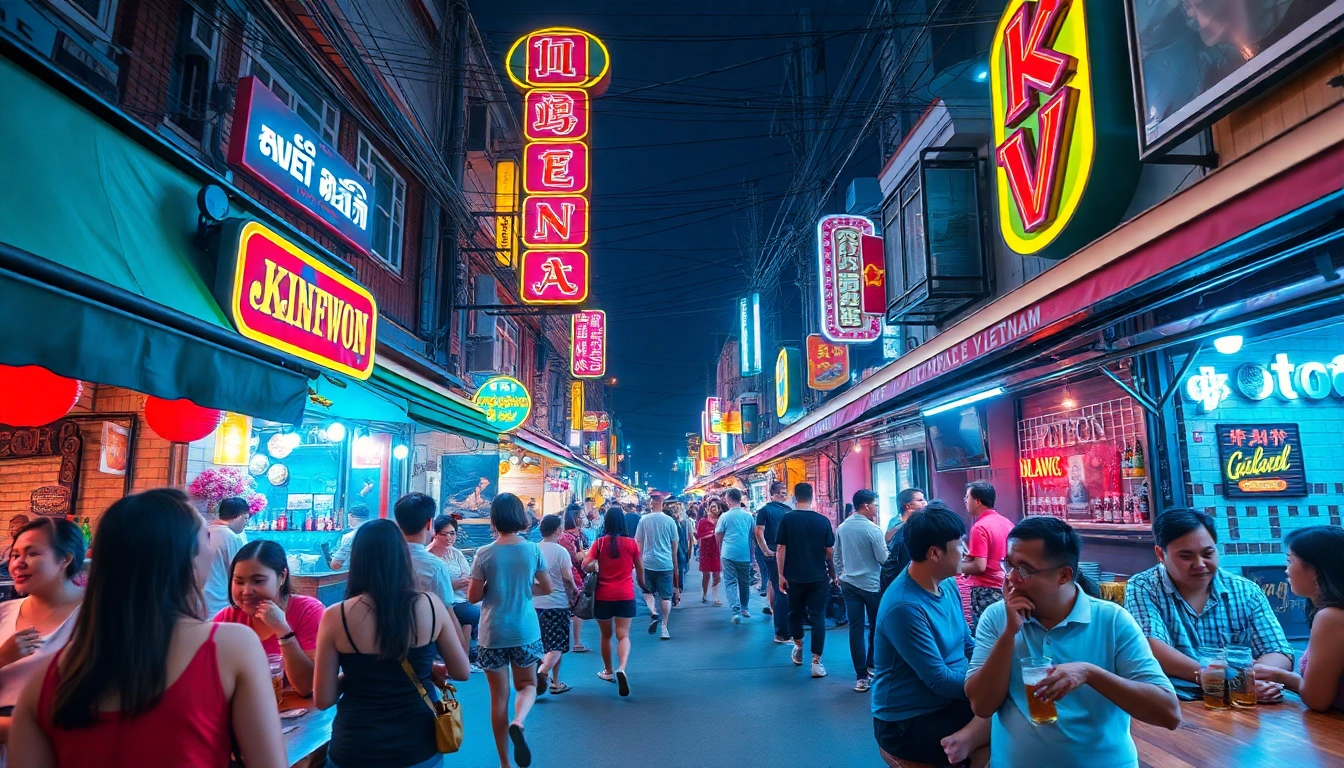Understanding Travel to Dubai
Dubai, a vibrant jewel in the desert, attracts millions of travelers every year with its unique blend of modernity and tradition. Known for its skyscrapers, luxury shopping, and rich cultural heritage, this emirate provides something for every type of traveler. Planning the perfect trip to this dynamic city requires understanding what makes it unique, the best times to visit, traveling requirements, and how to navigate its offerings. For those embarking on their journey, an insightful guide on travel to Dubai can significantly enhance the travel experience.
The Allure of Dubai: Why Travel Here
Dubai’s appeal lies in its multifaceted charm—where ultra-modern architecture meets the allure of rich history. Iconic structures such as the Burj Khalifa and the Burj Al Arab represent the pinnacle of luxury and innovation, drawing tourists who wish to experience life at a different altitude—both literally and figuratively.
The city’s multicultural environment, a result of its expatriate population, leads to a diverse culinary scene and a variety of cultural festivals throughout the year. From extravagant shopping centers to traditional souks, the experiences are as varied as the people who inhabit the city. Moreover, the blend of tradition and innovation can be observed during cultural events like Ramadan, Diwali, and the Dubai Shopping Festival, inviting travelers to immerse themselves in a rich tapestry of experiences.
Climate and Best Times for Travel to Dubai
Dubai has a desert climate characterized by extreme heat during the summer months (June to September) with temperatures often soaring above 40°C (104°F). Conversely, the period from November to March is considered the best time to visit, where the weather is pleasantly cool, ranging between 24°C to 30°C (75°F to 86°F). During these months, outdoor activities become more enjoyable, and events such as the Dubai Food Festival and Art Dubai take place.
Travelers should also consider occasional weather events, such as sandstorms, that may occur between March and September. Understanding these climatic variations can be pivotal in deciding when to book your flights and accommodations, ensuring a comfortable and memorable visit.
Visa Requirements and Travel Safety
Visa requirements for entering Dubai can vary significantly based on nationality. Most Western visitors can obtain a visa on arrival for up to 30 days, while citizens of certain countries may have to apply for a visa in advance. It’s essential to check the specific regulations for your country. For accurate and up-to-date information, refer to government travel advice or the UAE’s official tourism website.
Travel safety in Dubai is generally high, with the city being known for its low crime rates. However, it’s advisable to be aware of cultural norms and legal consequences related to public behavior, as laws can be strict. Engagement in certain activities, like public displays of affection or consuming alcohol outside designated areas, can lead to legal issues.
Planning Your Trip to Dubai
Choosing the Best Accommodation Options
Accommodation in Dubai ranges from opulent hotels to budget-friendly hostels, ensuring that travelers can find a suitable option regardless of their budget. Luxury hotels, such as the Burj Al Arab, offer extravagant amenities and unparalleled views, while mid-range hotels such as the Rove Downtown provide excellent service at affordable prices.
For those seeking unique experiences, consider booking a stay in one of the traditional Dubai guesthouses or lodges, which often provide a more personal touch and cultural immersion. It’s also wise to choose a location based on your itinerary; areas like Dubai Marina and Downtown Dubai are popular due to their proximity to key attractions.
How to Get Around During Your Travel to Dubai
Dubai boasts an efficient and modern transportation system that greatly facilitates travel across the city. The Dubai Metro is one of the fastest and most cost-effective ways to navigate, with routes connecting major areas and attractions. Additionally, taxis and ride-sharing services, such as Uber and Careem, are widely available and provide convenient door-to-door service.
For those inclined towards more scenic routes, consider taking an abra (traditional wooden boat) across the Dubai Creek, offering picturesque views of the city. Biking is also growing in popularity, with dedicated lanes and bike rental services becoming more accessible.
Building an Itinerary: Must-See Attractions
Creating a well-planned itinerary is crucial to ensure that you experience the best of what Dubai has to offer. Key attractions to include are:
- Burj Khalifa: The world’s tallest building, offering breathtaking views from its observation decks.
- The Dubai Mall: A shopper’s paradise, home to over 1,200 shops, restaurants, and entertainment options, including the Dubai Aquarium.
- Dubai Fountain: Located outside the mall, it offers a stunning water and lights show set to music.
- Dubai Miracle Garden: A mesmerizing garden featuring over 150 million flowers, creating a vibrant floral landscape.
- Dubai Museum: Located in the Al Fahidi Fort, it provides insight into UAE’s rich cultural history.
Moreover, don’t miss out on exploring the historical districts such as Al Bastakiya, where you can appreciate the traditional wind-tower architecture and art galleries.
Experiencing Culture during Your Travel to Dubai
Local Cuisine: A Foodie’s Journey
Dubai’s culinary scene is a representation of its multicultural makeup, encompassing flavors from across the globe. Traditional Emirati cuisine is a must-try, with dishes such as Al Harees (a wheat and meat dish) and Shawarma (spiced meat wrapped in flatbread) being immensely popular.
For a deeper dive into the local flavors, visit the local souks and food markets. The Dubai Spice Souk and the Dubai Fish Market offer an exotic array of spices, fresh produce, and local delicacies. Culinary experiences such as dining in the desert or taking cooking classes can elevate your food journey, providing a taste of the UAE’s rich culinary heritage.
Culture and Etiquette: What to Know
Understanding the local culture and etiquette is key to having a respectful and enjoyable trip in Dubai. The UAE is known for its Islamic customs, and travelers should be mindful to dress modestly, especially in public areas and during religious observances. Familiarizing oneself with the local customs—such as greeting individuals with “As-salamu alaykum”—can greatly enhance interactions with locals.
Additionally, tourists are encouraged to be observant of the cultural significance surrounding holidays like Ramadan, during which fasting occurs from dawn to dusk. Visitors should be respectful during this period; many restaurants may remain closed during the day, and eating or drinking publicly is discouraged.
Shopping and Souk Experiences
Shopping in Dubai is a remarkable experience, with everything from luxury brands to traditional handicrafts. The city’s souks offer a glimpse into the past, with bustling markets selling spices, textiles, and gold. The Gold Souk is particularly famed for its intricate jewelry designs and is a must-visit for shoppers.
Mall shopping is another experience entirely, with prominent sites such as The Mall of the Emirates that include indoor ski slopes and aquariums. The Dubai Shopping Festival, held annually, presents excellent opportunities for discounts and promotions across the various shopping venues, making it a shopper’s paradise.
Adventure and Activities to Explore in Dubai
Thrilling Experiences: From Desert Safaris to Skydiving
For adventure seekers, Dubai offers a plethora of exhilarating activities. Desert safaris are perhaps the most popular choice, where visitors can experience dune bashing, camel rides, and the unique opportunity to spend a night in a desert camp.
In addition, skydiving over the Palm Jumeirah offers an unmatched rush, with breathtaking views that create unforgettable memories. Indoor skiing at Ski Dubai provides an alternative adventure, where you can enjoy snow sports in the desert. These unique experiences allow you to explore contrasting aspects of Dubai: its tranquil deserts and vibrant skyscrapers.
Relaxation: Best Beaches and Spas
After an exciting day of activities, travelers can unwind at Dubai’s beautiful beaches. Jumeirah Beach is perfect for sunbathing, and Kite Beach offers vibrant beach activities alongside food trucks and cafes. For those seeking relaxation, luxurious spas in top hotels provide indulgent treatments and are just as integral to Dubai’s charm as its attractions.
Visiting the luxurious Talise Spa at the Burj Al Arab or the tranquil Anantara Spa at the Palm can provide the perfect escape, with a variety of treatments that incorporate traditional Arabian techniques.
Nightlife: Where to Enjoy the Best Entertainment
The nightlife in Dubai is as dazzling as its skyline. The city is home to numerous rooftop bars, nightclubs, and lounges that come alive after dark. Areas like Dubai Marina and the Downtown district are popular destinations where the rhythm of nightlife is most vibrant.
For a more cultural experience, visitors may opt for dinner shows featuring traditional belly dancing, or enjoy views of the Burj Khalifa while lounging at one of the upscale bars. Major events, concerts, and cultural performances are frequent in Dubai, making nightlife an integral part of the travel experience.
Travel Tips for a Hassle-Free Trip to Dubai
Budgeting Your Trip: Costs to Consider
Budgeting for a trip to Dubai can vary widely depending on your preferences and activities. Accommodation can range from budget options of around $50 per night to luxurious resorts over $800. Dining can also vary, with street food being affordable and upscale dining costing considerably more.
Transportation and tickets to attractions should also be factored into a budget. For instance, visiting the Burj Khalifa will require purchasing an entry ticket which can be quite pricey, especially for access to the observation deck. It’s advisable to allocate a daily budget that factors in both planned activities and spontaneous experiences, allowing flexibility during your trip.
Language and Communication: Tips for Tourists
While Arabic is the official language of Dubai, English is widely spoken. Most signs are bilingual, making navigation relatively easy. However, familiarizing oneself with basic Arabic phrases can enhance cultural interactions. Phrases such as “Shukran” (Thank you) or “Afwan” (You’re welcome) can go a long way in demonstrating respect for the local culture.
Additionally, ensure that you have mobile data or a local SIM card for easy navigation and communication. Wi-Fi is available in most public places and hotels, but having a backup is useful for getting around the city.
Local Laws and Customs to Observe
Understanding local laws and customs is vital when visiting Dubai. The city has strict rules around behavior in public, and visitors should be cautious of actions that may be deemed inappropriate. For example, public drunkenness is treated seriously, and explicit gestures can lead to heavy fines or criminal charges.
Be sure to respect local customs during religious occasions and holidays. When visiting mosques or religious sites, modest clothing covering arms and legs is required, and it’s essential to be polite and respectful about taking photographs.




